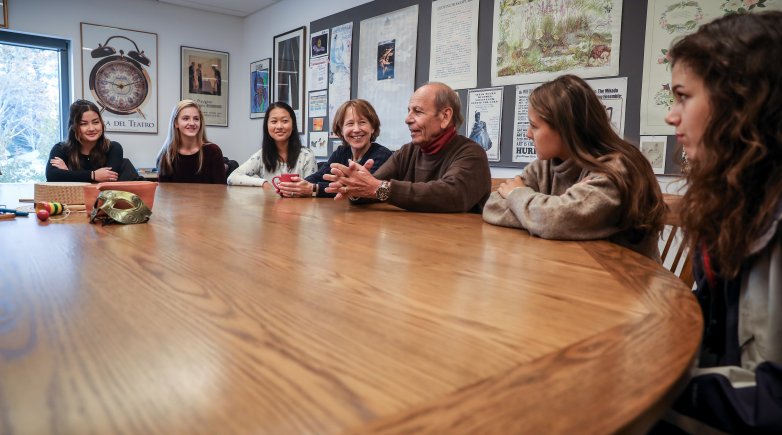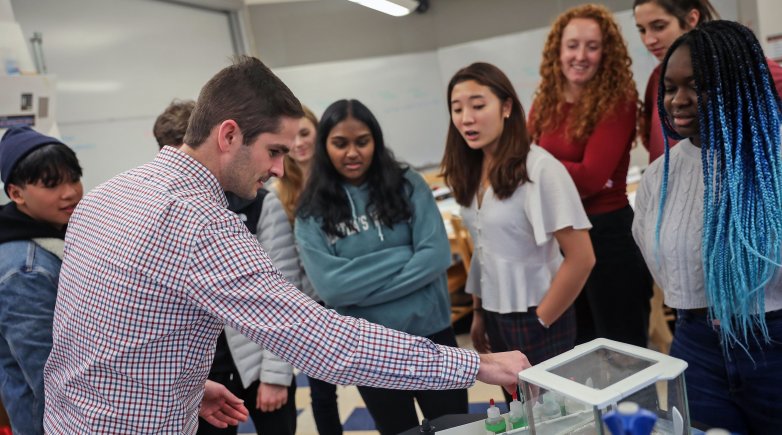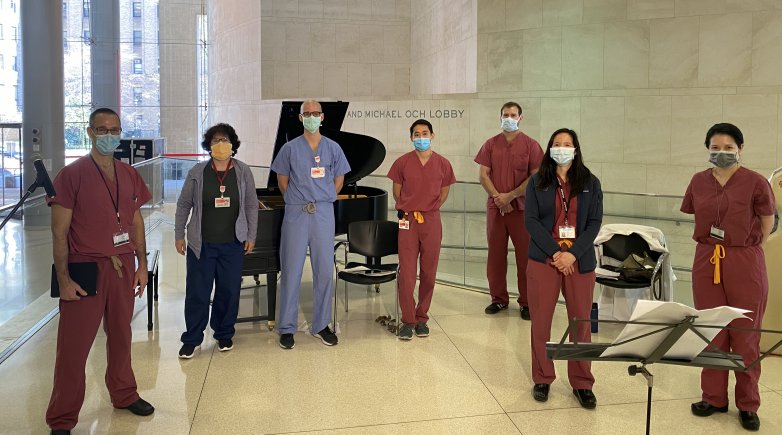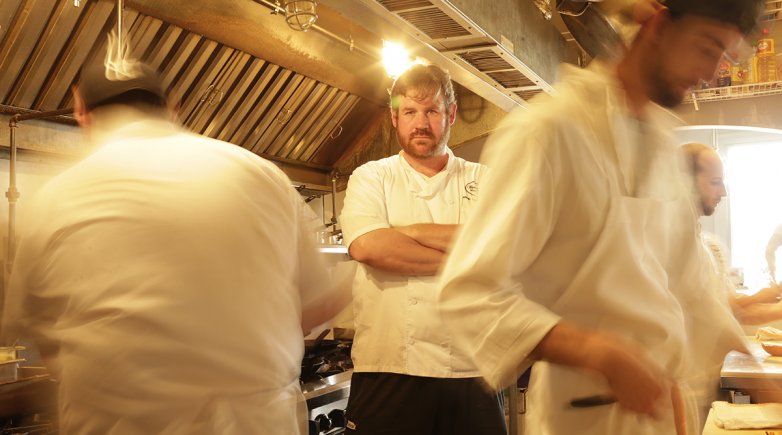Collection hails the Exeter experience, warts and all
"I Can Still See It Now" by Joseph Nadeau '55 gathers perspectives of Academy students past and present
Joseph Nadeau '55 speaks with Theater Instructor Sarah Ream '72 and current Exeter students who contributed to his collection of essays, "I Can Still See It Now."
If there is a universal truth across Exeter generations, it is that the Academy will humble even the finest student — and they will be better for it.
This was the consensus of the series of essays that make up “I Can Still See It Now: Phillips Exeter Academy 1955-2055,” a collection of reflections and projections of Exeter students past and present. Inspired and edited by retired New Hampshire Supreme Court Justice Joseph Nadeau ’55, the collection is intended to offer “a 100-year kaleidoscope of Exonian experience and imagination.”
Nadeau tapped his 1955 classmates — who were meant to be celebrating their 65th reunion this spring until the pandemic intervened — to write about how their time at Exeter influenced their world view today. He simultaneously deployed Instructor in Theater Sarah Ream ’75 to find current students who might share how their Exeter experience is unfolding — and to predict how it might shape their future. Nadeau acknowledges up front that “the writers each tell a distinct story, and do not hesitate to describe their challenges, their disappointments, their discoveries and their visions.”
“What I experienced at Exeter was no bed of roses,” writes Alexander Boyle ’55. “There were plenty of ups and downs, probably more downs than I expected.” Boyle’s classmates describe the sink-or-swim Exeter of the mid-1950s as academically strenuous and socially unforgiving at times, though most also credit the Academy with building them into the men they became (and they were all men two decades ahead of coeducation). “Looking back, as we all know now, we were lucky to have the Exeter experience at that critical juncture of our lives when we were striving to find out who we were and who we wanted to be and what we wanted to do with the one life that we would have,” writes Charles Ellis ’55.
“So many able and caring adults poured so much caring and wisdom and understanding over us and into us that John Phillips would have been well pleased.”
Nadeau met last fall with the dozen current students who submitted essays. He told them he was struck by the common themes that spanned their work and that of his classmates, “the same challenges, the same hopes and concerns. Loneliness, homesickness, hating Harkness, loving Harkness,” Nadeau told them. He said he was confident that the support and care the faculty and administration offer students today was superior to that which his class was afforded but appreciated that regardless of the support they received, navigating an Exeter upbringing is a challenge each must meet individually.
The students’ pull no punches in their perceptions of Exeter’s shortcomings, most notably in the school’s efforts to offer an equitable experience to “youth from every quarter,” especially for students from other cultures and for people of color. But most of the students also write hopefully about how their Exeter experiences might shape their and their classmates’ lives and impact the future they will inherit.
“When I see my classmates, whose backgrounds and perspectives are wide and ranging, come to the same table every morning,” writes Dillon Mims ’21, “I dream of a world united, having rejected the notion of ‘us vs. them’, embracing each other as equals, not unlike the way we do here. In short, the world would have a lot more knowledge and a whole lot more goodness.”
Writes Lhamo Dixey ’20:
“This I know for certain: My classmates will be educators. They will be capable of adapting to new environments. They will see situations from a new, unique perspective. They will have found ways to utilize Harkness in the real world. They will know how to collaborate, to listen. They will reflect upon their years at Exeter, remembering the challenge of academic intensity. They will not remember every grade they received, nor will they look back upon their day-to-day rituals. Instead, they will rest in knowing that it was all worth it.”



